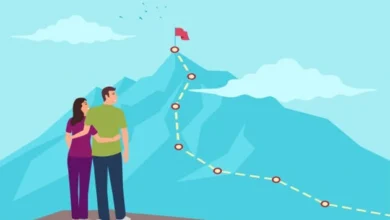16 things we expect others to do but rarely do ourselves

We are accustomed to blaming the people around us for cowardice, distrust, anger, and indecision, and we rarely think that these words can describe ourselves. When we demand certain behavior from another person, we must respond in kind.
Here are a few things we expect others to do but rarely do ourselves
We expect that with us, they will be extremely open and honest in their intentions
Each person wants to know the intentions of the other, especially when it comes to intentions associated with the manifestation of sympathy and love. Simply put, we want people to let us know what they want from us.
We are rarely honest about our expectations. We make others wait, suffer from a sense of uncertainty and doubt only because it is easier for ourselves in the first place.
We are waiting for offers of help
We expect that in response to the stories about the difficulties that have arisen, the people around them will offer their help. However, when someone is disappointed to share their experiences with us, we listen to them silently or give advice, staying idle until they ask for help directly.
We want our opinions to be respected
If you divide opinions into yours and the wrong, there is no point in expecting others to respect you or your point of view. To earn respect, you must first learn to respect yourself.
We expect people to be kind to everyone around them
We try to praise kindness by teaching children and adolescents to be not indifferent to someone else’s misfortune, while at the same time, we fight for our interests with methods that cannot be called honest and harmless. We pass by people who need help.
We ignore any opportunities for showing kindness if it takes time and energy, which we feel sorry for wasting, but persistently demand a kind attitude towards ourselves and our loved ones.
We are waiting for someone else to take the first step
We do not like the suspended situation, but we do not want to approach the person of interest to us first since we consider such behavior to be at least unsafe. What if there is no reciprocity, and you have to go through a hard refusal again?
If you are indecisive, it’s time to push your fear into the background and finally step out of your comfort zone. Learn to take the first step, invite girls on dates, talk about your feelings, show at least some initiative. Do not expect from others what you cannot do yourself.
We expect that a person will start to trust us from the very first meeting
We expect that a person will begin to trust us immediately after meeting us. However, we rarely share anything personal with recent acquaintances, justifying our distrust by knowing this person too little.
We expect that we will not be discussed behind the back
We often talk about our acquaintances, colleagues, friends, or even about those we know only from the stories of others. But suppose we find out that we have also become the object of discussion. In that case, we experience almost righteous anger, sincerely not understanding how we deserve such an attitude towards ourselves.
We expect that we will not be judged, not knowing all the circumstances
We are used to demanding understanding from others, saying that each of our decisions was made with a certain background. We often condemn other people for their actions without even trying to understand their true reasons and look at the situation differently.
We expect our loved ones to begin to appreciate and love themselves
We want people who are dear to us to stop saying bad things about themselves and believe in themselves and their strengths. However, they are not ready to learn to respect themselves and accept positive comments from others.
We expect radical changes from other people
When we understand that a person is engaged in self-destruction, we expect that he will quickly and radically change his life for the better (switch to proper nutrition, quit low-paid jobs, break off toxic relationships). However, such changes do not happen overnight. To verify this, analyze your negative habits.
We expect people around to behave in the right way
We condemn those people who, in our opinion, are misbehaving. But when we get tired after a hard day, miss a project deadline, or be late for an important meeting, we stop worrying about whether we’re doing the right thing at the moment.
We expect to be loved for no reason
We demand love for ourselves, regardless of our weight, height, physique, salary, and so on. However, we evaluate the people around us through the prism of the above factors.
We expect understanding from others
We want to be supported in our choice, our actions are understood and accepted, and our interests at least respected. But in return, we are not ready to offer the same impeccable understanding.
We expect others to be sincerely happy about our successes and achievements
We want to share the joy of achieving goals and victories with the people around us. At the same time, other people’s successes only cause envy for most of us. We are in a hurry to devalue the achievements of others, to prick them more painfully, to compare their victories with ours.
We expect people to listen to our advice
In some situations, oddly enough, the people around you can suggest the best solution to the problem. We hope that the person will take advantage of our advice, but this rarely happens. Before you start to be indignant, you need to figure out how much practical advice we have ignored from our relatives and friends.
We expect others to help us out at the first call
As soon as we get into trouble and ask for help, people suddenly have many urgent things to do. Although we, in uncomfortable situations, often refuse to help because of an unplanned trip to the country or a fictitious illness of a cat.



